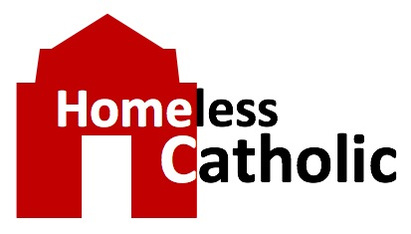What, exactly, is the problem?
Our text for today begins with a question: “This saying is hard; who can accept it?”
- That Jesus brings the wisdom of the Father?
- That Jesus is the Word of the Father?
- That belief in Jesus is crucial to knowing the Father?
- That Jesus has come down from heaven?
- That Jesus Himself is the true bread?
- That there is no life in you unless you eat this bread?
But which saying is the problem?
Reflection - Problem?
http://www.usccb.org/bible/readings/050220.cfm
Acts 9:31-42
John 6:60-69
“In the beginning was the Word, and the Word was with God, and the Word was God.” (John 1:1)
This text isn’t part of today’s selection from John, but it could easily have been selected as it’s introduction. John’s forthright statement of his theological position on Jesus, the Christ draws from images and relationships that we are not universally familiar with as his contemporaries were. The living, active Word of God was more than a concept for them. It was reality.
As so often happens with a selection from John, we are asked to join in the midst of an incident — sort of like stepping into the middle of a conversation. But then, I’m not sure it would make much difference. John probably spent sixty or more years pondering those few years from his youth when he experienced the physical, concrete presence of the incarnate God of his Jewish heritage. Sometimes both the variety and richness of that personal legacy and his Jewish ancestral past seem to get jumbled for those of us who have not lived within that relational milieu. The larger passage from which today’s verses are drawn immerse us in some of that robust and fertile territory.
Our text for today begins with a question: “This saying is hard; who can accept it?”
But which saying is the problem?
The incident itself begins with Jesus teaching the multitude and then feeding them with five loaves and two fish. By that time it’s late in the day. Jesus departs by Himself on foot after sending the Apostles across the lake by boat. The next morning, the crowd goes in search of Jesus and find him with the Apostles at a different lakeshore town. “When they found him on the other side of the sea, they said to him, ‘Rabbi, when did you come here?’" (John 6:25) In reading the gospel of John we necessarily question if there’s not a second level of meaning when questions are asked. The obvious level seeks to find out how Jesus came to be at such a distant town when he had left the crowd on foot. Jesus’ reply would suggest that the hidden question would seem more specifically focused on the sudden appearance of this extraordinary man. “Jesus answered them, ‘Truly, truly, I say to you, you seek me, not because you saw signs, but because you ate your fill of the loaves.’” (John 6:26) In other words: you missed who I am. His challenge to them evokes memories of the reply he gave Satan during the desert temptations when it was suggested that he should turn stones into bread.
"It is written, 'Man shall not live by bread alone, but by every word that proceeds from the mouth of God." (Matthew 4:4) They should have sought him out, not because their physical hunger was satisfied, but because the wisdom of God, which He offered in his teaching, had filled their spiritual emptiness. Recall here John’s opening: “In the beginning was the Word . . . “
Jesus’ reply leads us directly to the matter of belief. Specifically it leads to belief in Jesus Himself as the Wisdom and Word of the Father. “Jesus answered them, ‘This is the work of God, that you believe in him whom he has sent.’" (John 6:29) In response, the people ask for a sign — say, something similar to the manna their ancestors were given in the desert. Thus, the issue of bread, which started the interaction, is revived.
"Truly, truly, I say to you, it was not Moses who gave you the bread from heaven [the manna in the desert]; my Father gives you the true bread from heaven.” (John 6:32) Consequently, their grumbling becomes more evident. “The Jews then murmured at him, because he said, ‘I am the bread which came down from heaven.’" (John 6:41)
Again it is essential to recall the opening of John:
“In the beginning was the Word . . . “
“In him was life . . .”
So the conversation continues; and Jesus elaborates on the meaning and power of bread, specifically on the meaning and power of the true bread, the bread from heaven. “So Jesus said to them, ‘Truly, truly, I say to you, unless you eat the flesh of the Son of man and drink his blood, you have no life in you.’” (John 6:53)
All of this comes before the reading given us for today. So when we reach the concluding part of this interactive drama we are left to specify which of these sayings is hard to accept?
- That Jesus brings the wisdom of the Father?
- That Jesus is the Word of the Father?
- That belief in Jesus is crucial to knowing the Father?
- That Jesus has come down from heaven?
- That Jesus Himself is the true bread?
- That there is no life in you unless you eat this bread?
Notice Peter’s statement as this incident concludes: “Master, to whom shall we go?
You have the words of eternal life.” So, we’re back to the beginning: “In the beginning was the Word, and the Word was with God, and the Word was God.”
Jesus is Wisdom. He is Word. “He who has seen Jesus has seen the Father.” (John 14:9)
He has come down from heaven. He is the true bread. He is the bread which gives eternal life. He is the bread which must be eaten.
It’s all or none.
Selective belief makes no sense.

